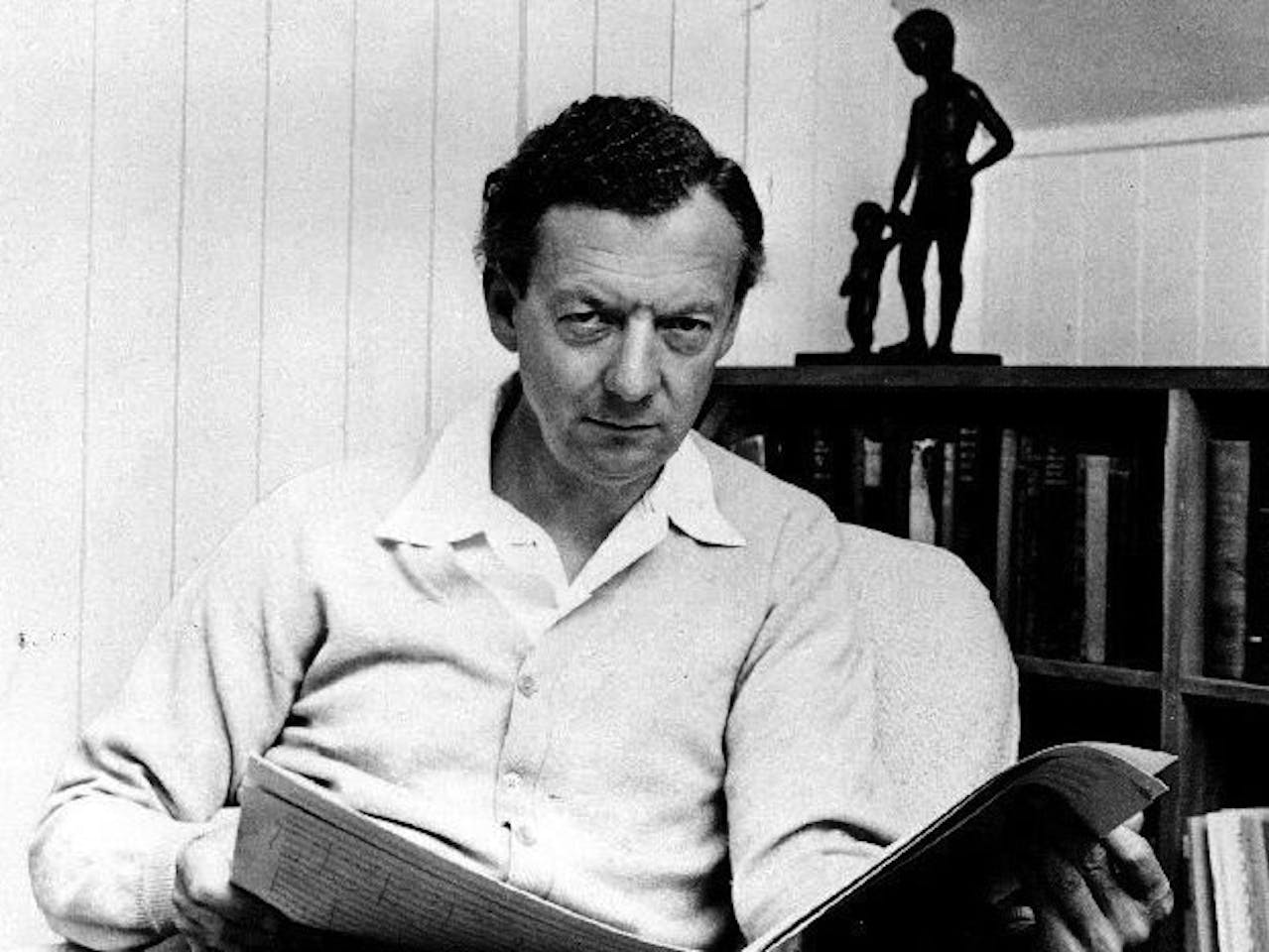Benjamin Britten
Biography
English composer, conductor and pianist Benjamin Britten (1913–76) was one of the leading musical figures of his generation. Perhaps the greatest of his many legacies is the revival of English opera. His operatic masterpieces include Peter Grimes, Billy Budd, The Turn of the Screw, Death in Venice and the three Church Parables. Britten premieres at The Royal Opera House include Billy Budd, Gloriana, Owen Wingrave (stage premiere) and his only ballet, The Prince of the Pagodas.
Britten was born in Lowestoft and began writing music at an early age. He studied at the Royal College of Music with Frank Bridge and began his professional career in the General Post Office Film Unit in 1935. Early successes included Variations on a Theme of Frank Bridge (1937) and his Piano Concerto (1938). A conscientious objector, in 1939 Britten moved to the USA with the tenor Peter Pears, his lifelong partner and muse; they returned to England in 1942. Works from the American period include his first stage work, Paul Bunyan (1941). The tremendous success of Peter Grimes (1945) won Britten international recognition. For the rest of his life he remained at the forefront of British music, with other great works including War Requiem (1962), Symphony for Cello and Orchestra (1963) and Phaedra (1975).
Britten’s music reflects such diverse influences as English folksong and Balinese gamelan. His music always celebrates and encourages the ingenuity and creativity of his performers, a legacy continued today by the Aldeburgh Festival, which he founded in 1948.
Royal Opera House Covent Garden Foundation, a charitable company limited by guarantee incorporated in England and Wales (Company number 480523) Charity Registered (Number 211775)

